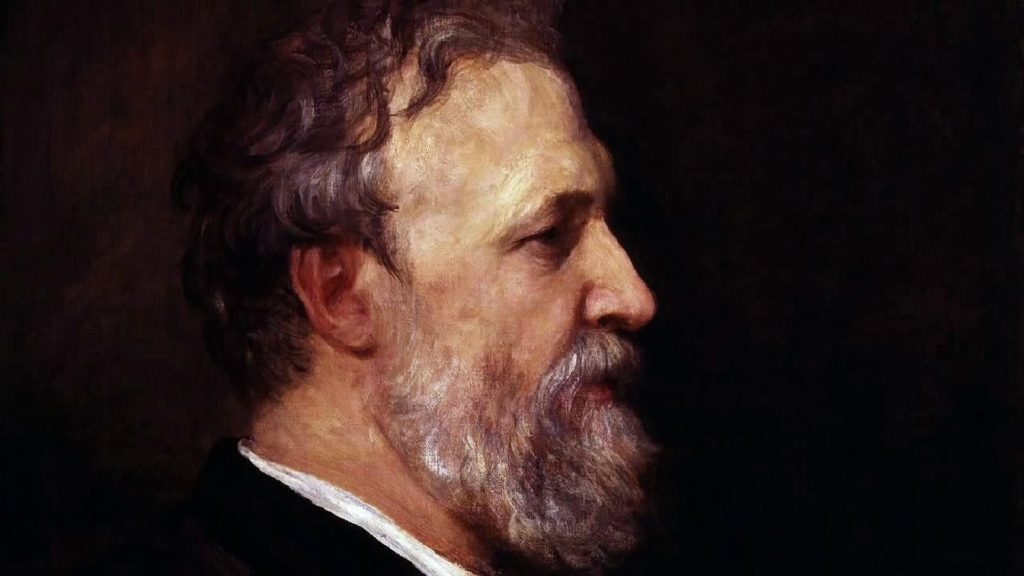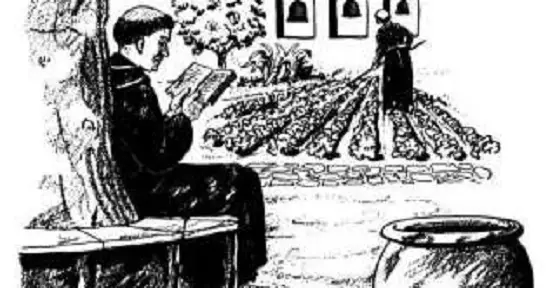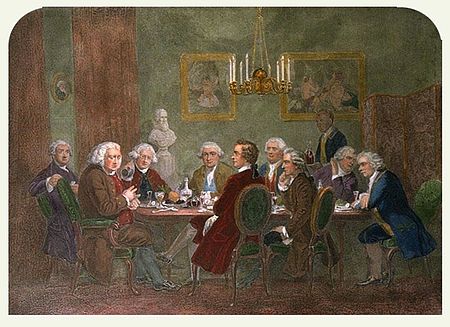A Soliloquy of a Spanish Cloister is a popular poem by Romantic poet Robert Browning. The poem was first published in his 1842 collection of poetry Dramatic Lyrics and is highly regarded among readers and critics for its tone and complexity of thought.
The poem is a soliloquy, as the title states, that can be considered documentation of the thoughts of the speaker. All the reader knows is that the speaker is a monk and, in the poem, he speaks of his hatred for another monk Brother Lawrence. The poem starts on a lighter note and gradually becomes more intimate and darker as the speaker continues to speak of the extent to which he hates his fellow monk.

A Soliloquy of a Spanish Cloister Summary
The poem opens with the speaker looking at Brother Lawrence trimming and watering his plants. In the first line, he makes it very clear that he hates him beyond limits and the sight of him fills him with anger and rage. He says that if hate was enough to kill people, his fellow monk would have been dead by now while continuing to mock his activity.
With the second stanza, the speaker starts to think about their meals when he is supposed to sit with Brother Lawrence. He speaks of the wise things that the monk talks about while on the table along with his talks about the weather and similar things.
As the third stanza begins, the reader starts to understand that the hate that the speaker has is not some harmless strife as he comments about the eating habits of the monk. He describes the love that the monk has for great food and how he refuses to eat anything that is low in terms of quality. As he watches, one of the lilies that he is tending to breaks and the speaker laughs in pleasure for his loss.
This takes the attention of the speaker to the two women who are washing their hair in a water tank nearby. He comments on the way Brother Lawrence is watching them, filled with lust and wishes that he could see that lust in his eyes. Immediately, he states that he has failed to see it because the monk is very good at hiding it.
This brings him back to the thoughts of having a meal with him. He starts to speak of the non-Christian ways in which he eats. He says that after eating, he never puts his knife and fork down in a cross as a sign of respect for Jesus. He also drinks his water in one single sip while they are supposed to do that in three sips as a symbol of respect for the Trinity. Further, the speaker talks about the melon plants that Brother Lawrence is trimming for the dessert that will be served to the monks. He continues to chide the ways in which he is dealing with the fruits.

In the next stanza, the thoughts of the speaker move to a darker territory as he speaks about sin and damnation of the sinners. He says that there are twenty nine ways in which sinners can be damned and he will make sure that if Brother Lawrence is not damned in one way, he will try another to make sure that he fails.
For this, in the next stanza, the speaker tells about a lewd French novel. He says that he will use the content of this novel to fill Brother Lawrence with evil thoughts. Once he starts having such thoughts, it will be a sin that will surely send him to hell.
In the last stanza, the speaker gets more and more anxious. He says that even if he has to sell his soul to Satan, he will do it to condemn Brother Lawrence to hell. However, he is saved from further going deeper into darkness by the bells that announce the time for the evening prayers.
A Soliloquy of a Spanish Cloister Analysis
A Soliloquy of a Spanish Cloister is a poem that explores the dark side of human psychology in a way that evokes a sense of amusement in the reader. Like most of Browning’s dramatic monologues, this poem also speaks more about the reader rather than the person that they are talking about.
The speaker of the poem accuses Brother Lawrence of a number of vices that he himself is guilty of committing. For example, the speaker says that Brother Lawrence is looking at the two girls with lust. Even though he cannot see that lust in his eyes, he knows that it is the case. He himself is a follower of Christianity but on a surficial level and accuses his subject of not following those symbolic rituals.

Similarly, he talks about a French novel that he knows is lewd in its content, obviously because he knows about the nature of the content. He says that he will make Brother Lawrence red it because it would be a sin even when he has himself committed that sin already. Maybe he is so sure that it will fill his head with such ideas because he already has them in his mind.
The extent of the darkness of the character of the speaker reaches its highest point in the poem when he speaks of selling his soul to Satan to lure Brother Lawrence into sin. He is so determined to send him to hell that he would not miss any chance of doing the same, even when it means he has to face hell himself.
In spite of all these aspects, the most interesting feature is the tone of the poem. The poem starts with a “G-r-r-r” that depicts the irritation that the speaker feels even at the sight of Brother Lawrence. As the poem progresses, Browning misses no chance of evoking humor and despise at the same time. For this, his language is the only tool which means that the form of the poem does not aids its content much.